Undercover law enforcement operations in Turkey have become an essential tool in the fight against organized crime, terrorism, and cybercrime. This study analyzes the legal basis under Criminal Procedure Code Article 139, explores how covert techniques are applied in practice, and examines their evidentiary and ethical implications. While undercover methods can yield powerful results, they also pose serious risks—including entrapment, unlawful evidence collection, and psychological strain on officers. Particularly concerning is the illegal practice of evidence implantation by undercover agents. In situations where such misconduct is suspected, Bıçak Law Firm offers legal services to uncover, challenge, and prevent the use of fabricated or unlawfully obtained evidence, safeguarding the rights of individuals and ensuring accountability. Drawing on international standards and ECtHR case law, the report offers policy recommendations to enhance oversight and ensure that undercover operations remain lawful, effective, and rights-compliant.
Undercover Operations in Turkey: Legal Perspective
In the modern era of complex and organized criminality, undercover operations in Turkey have become a critical tool, as traditional law enforcement techniques often prove insufficient in detecting and dismantling covert, hierarchical, and adaptable criminal structures. As criminal actors adopt more sophisticated methods – ranging from encrypted communications to decentralized operations – law enforcement agencies must likewise evolve their investigative strategies. One of the most effective, albeit controversial, tools in this evolution is the use of undercover operations.
Undercover operations, by their very nature, involve deception: law enforcement officers assume false identities or infiltrate criminal environments without revealing their official status. Unlike overt policing, these operations allow officers to observe, interact with, and collect evidence against suspects from within the criminal milieu. Whether it is a police officer posing as a member of a drug cartel, a gendarmerie agent infiltrating a smuggling ring, or a customs officer joining a network of counterfeit traders, the undercover technique opens investigative doors that would otherwise remain shut.
Globally, undercover operations are viewed as a necessary and powerful response to crimes that rely on secrecy, loyalty, and non-cooperation of insiders. In Turkey, this method is employed across various law enforcement agencies, including the General Directorate of Security (Emniyet Genel Müdürlüğü), the Gendarmerie General Command (Jandarma Genel Komutanlığı), the Coast Guard Command (Sahil Güvenlik Komutanlığı), and the Customs Enforcement Directorate (Gümrükler Muhafaza Genel Müdürlüğü). These institutions rely on undercover agents to expose crimes ranging from narcotics and human trafficking to terrorism and financial fraud.
However, the use of undercover operations also raises significant legal, ethical, and procedural questions. How far can deception go before it amounts to entrapment? What legal safeguards are in place to protect constitutional rights, such as the right to privacy, fair trial, and due process? How is the evidence gathered by undercover officers evaluated in court? And what mechanisms exist to prevent abuse or misuse of this powerful investigative technique?
This study aims to provide a comprehensive examination of the legal framework, practical application, and normative challenges associated with undercover law enforcement operations in Turkey. Beginning with an exploration of the phenomenon itself – its necessity, methods, and inherent risks – the analysis proceeds to examine the constitutional and statutory basis for such operations under Turkish law. It further delves into the procedural safeguards, evidentiary rules, comparative legal practices, and ethical considerations that shape the use of undercover methods in a democratic society governed by the rule of law.
By shedding light on both the strengths and vulnerabilities of this investigative tool, the study seeks to inform legal professionals, academics, policymakers, and law enforcement practitioners on how undercover operations can be conducted effectively, lawfully, and ethically within the Turkish legal system.
The Phenomenon of Undercover Operations
Concept and Definition
Undercover operations represent one of the most sophisticated investigative tools available to law enforcement agencies. At their core, these operations involve officers intentionally concealing their official identity in order to interact with suspects and infiltrate environments where criminal activity is suspected. Unlike surveillance or informant-based methods, undercover work entails direct participation in the criminal milieu, often requiring the officer to assume a false identity for an extended period.
The essence of undercover policing lies in deception – strategically crafted not to harm but to expose wrongdoing that would otherwise remain hidden. In practice, this may involve law enforcement personnel posing as drug buyers, arms dealers, smugglers, sex workers, or members of organized crime networks. Such roles provide critical access to inner circles of criminal enterprises, making it possible to obtain firsthand evidence that is otherwise inaccessible through conventional police procedures.
Necessity and Rationale
The increasing complexity, fluidity, and global reach of organized crime have necessitated the expansion of covert investigative strategies. In Turkey, as in other jurisdictions, undercover operations are particularly indispensable in the investigation of offenses such as:
- Narcotics trafficking and production;
- Terrorist organization membership and activity;
- Human trafficking and migrant smuggling;
- Cybercrime and online exploitation;
- Financial crimes, including corruption, counterfeiting, and money laundering.
In such contexts, standard investigative techniques – like witness statements or physical evidence – are often inadequate due to lack of cooperation from victims, fear of retaliation, or highly secretive criminal tactics. Undercover officers, by embedding themselves within these circles, can gather decisive evidence, disrupt criminal networks, and even preempt the commission of future crimes.
Common Types and Methods
Undercover operations are highly adaptable and can be tailored to the nature of the crime and the criminal environment. Among the most common approaches are:
- Infiltration: Officers integrate themselves into a criminal organization, often assuming roles as drivers, intermediaries, or co-conspirators.
- Sting Operations: Law enforcement sets up a controlled environment, such as a fake buyer or seller scenario, to lure suspects into revealing their illegal conduct.
- Online Covert Presence: Officers create false digital identities to monitor chat rooms, forums, or social media platforms for criminal activity, including child grooming or darknet drug markets.
- Street-Level Assignments: Officers pose as vulnerable individuals – such as prostitutes, taxi drivers, or drug users – in high-crime areas to observe or trigger illicit approaches by suspects.
Each of these methods requires careful planning, legal authorization, and adherence to operational protocols to ensure safety and legal compliance.
Benefits and Strengths
The operational advantages of undercover investigations are numerous:
- Firsthand Access to Criminal Evidence: Officers can observe and document crimes as they unfold, offering direct and often irrefutable evidence.
- Exposure of Hidden Networks: Through trust-building, undercover agents can identify higher-ranking members, financiers, and facilitators of criminal organizations.
- Strategic Prevention: By intervening at earlier stages of criminal planning, such operations may thwart crimes before they are committed.
- Psychological Insight: Interaction with suspects allows investigators to better understand criminal motives, decision-making processes, and structural dynamics.
These benefits contribute significantly to proactive policing, intelligence gathering, and high-quality criminal prosecutions.
Risks, Limitations, and Legal-Ethical Concerns
Despite its utility, undercover policing is fraught with challenges and dangers:
- Entrapment Risks: If the undercover agent goes beyond passive observation and induces or encourages criminal acts, this may violate due process rights and render evidence inadmissible.
- Officer Safety: Physical threats are inherent in assignments involving violent criminals or unpredictable environments.
- Psychological Toll: Long-term identity suppression can lead to emotional stress, moral conflict, and identity disturbances.
- Evidentiary Challenges: Defense attorneys may question the credibility of undercover officers, alleging manipulation, misconduct, or provocation.
Moreover, the line between permissible deception and unlawful interference must be vigilantly observed. Courts must scrutinize whether the undercover operation respected constitutional boundaries and procedural fairness.
Recruitment, Training, and Oversight
Not every law enforcement officer is suited for undercover work. Candidates must be carefully selected based on psychological resilience, adaptability, ethical judgment, and communication skills. Key elements of preparation include:
- Legal Training: Officers must understand limits imposed by national laws (such as CMK Article 139 in Turkey) and the criteria for lawful evidence gathering.
- Scenario-Based Exercises: Simulated environments help officers develop the skills necessary to maintain cover, navigate dangerous interactions, and extract information effectively.
- Cover Story Construction: Detailed backstories, documents, and behavioral alignment are essential to maintaining operational credibility.
- Post-Operation Debriefing: After withdrawal from the operation, officers typically undergo mental health assessments, legal review, and institutional reporting.
Professionalization and accountability are vital in maintaining the legitimacy and ethical integrity of undercover operations.
Legal Framework for Undercover Operations in Turkey
Constitutional Principles
The Turkish Constitution of 1982 lays down several core principles that define the legal limits within which law enforcement, including undercover officers, must operate. These principles form the constitutional boundaries for the use of covert techniques and provide the normative framework for balancing public security with individual rights. Key provisions include:
- Article 20 – Right to Privacy: Guarantees the confidentiality of private life, requiring that any restriction be based on a court decision or explicit law and subject to necessity and proportionality.
- Article 21 – Inviolability of the Home: Protects against unlawful searches or surveillance within private dwellings, allowing exceptions only under judicial order.
- Article 22 – Freedom of Communication: Safeguards all forms of communication, including digital correspondence, from monitoring, interception, or restriction without judicial approval.
- Article 36 – Right to a Fair Trial: Ensures procedural fairness in criminal proceedings, which includes protection from unlawful evidence-gathering methods such as entrapment.
- Article 38 – Principles of Criminal Responsibility: Establishes the presumption of innocence and prohibits compelling individuals to self-incriminate.
These constitutional guarantees require that undercover operations be used as a last resort, under strict conditions, and only when less intrusive methods are unlikely to yield effective results. Furthermore, any evidence obtained through unconstitutional means may be excluded under Article 38 and corresponding case law.
Statutory Basis
Criminal Procedure Code (CMK) Article 139 – “Gizli Soruşturmacı”: The main statutory provision regulating undercover investigations in Turkey is Article 139 of the Criminal Procedure Code (CMK) No. 5271, which governs the appointment and duties of gizli soruşturmacı (covert investigator). Key elements of Article 139 include:
- Scope of Application: Undercover agents may be appointed for the investigation of crimes explicitly listed in Article 139/1, such as terrorism, drug trafficking, organized crime, money laundering, sexual exploitation, bribery, and arms smuggling.
- Judicial Authorization Requirement: The appointment must be requested by the public prosecutor and approved by a criminal judge of peace (sulh ceza hâkimi). The decision must clearly state the target crime, purpose, scope, and duration of the operation.
- Identity Concealment and Legal Protections: The undercover investigator is legally permitted to conceal their true identity, use fabricated documents, and operate within the criminal environment without revealing their law enforcement status. However, they are not permitted to provoke or incite criminal behavior.
- Time Limits: The initial authorization is limited to four weeks and may be renewed in four-week increments, not exceeding a total of three months unless the crime investigated is terrorism or an organized crime offense, in which case the period may be extended further upon judicial approval.
- Prohibition of Criminal Acts: Although undercover officers may be present during the planning or execution of crimes, they are strictly prohibited from actively participating in criminal acts that are not covered by legal justifications such as necessity or self-defense.
Law on the Duties and Powers of the Police (PVSK) No. 2559: The Police Duties and Powers Law regulates the general duties and permissible interventions of police officers, including preventive measures, intelligence collection, and cooperation with prosecutors. Article 7/A authorizes the police to engage in covert surveillance or pre-investigative intelligence-gathering, though it does not itself provide legal authority for fully embedded undercover operations without judicial oversight as per CMK Article 139.
Law on the Gendarmerie General Command No. 2803: The Gendarmerie has similar powers within its rural jurisdiction, but its operations are also bound by the Criminal Procedure Code and the Constitution. Covert investigative techniques are subject to the same authorization and oversight requirements, and gendarmerie personnel may be appointed as gizli soruşturmacı in appropriate cases.
Law on the Coast Guard Command No. 2692: The Coast Guard operates in maritime zones and holds authority to investigate crimes such as human smuggling, illegal fishing, arms trafficking, and environmental offenses. While not a primary actor in undercover investigations, its officers may collaborate with police or gendarmerie in multi-agency operations when maritime crime intersects with organized criminal activity.
Customs Law No. 4458 and Customs Enforcement: The Customs Enforcement Directorate (Gümrükler Muhafaza) is empowered to detect and investigate customs-related offenses, including smuggling and counterfeit goods. While not explicitly covered under CMK Article 139, customs officers may work alongside judicial police in undercover roles subject to judicial approval when targeting transnational organized crime.
Judicial Authorization and Procedural Safeguards
The legality of undercover operations in Turkey hinges on the existence of prior judicial authorization. Unlike general intelligence-gathering methods, the deployment of an undercover officer is considered a special investigatory measure requiring the following procedural safeguards:
- Application by the Prosecutor: The public prosecutor must submit a detailed request, indicating the necessity and proportionality of assigning a covert officer.
- Decision by the Criminal Judge of Peace: A reasoned judicial decision must specify the crime investigated, scope of operation, cover identity, permissible conduct, and time limitations.
- Renewals and Supervision: Continued operations require successive judicial renewals. Oversight mechanisms include periodic reports to the judge and internal monitoring by supervisory authorities within the law enforcement agency.
- Limits on Evidence Use: Evidence obtained through illegal or excessive undercover conduct – such as inciting a suspect to commit a crime – may be ruled inadmissible under CMK Article 206 and Article 217, which prohibit the use of unlawfully obtained evidence.
Constitutional Court Jurisprudence
The Constitutional Court of Turkey has repeatedly emphasized the importance of balancing public security with the protection of individual rights in criminal investigations. Although specific case law on CMK Article 139 remains limited, the Court has set out broad principles in its rulings on:
- Right to a fair trial (Article 36 of the Constitution);
- Exclusion of evidence obtained unlawfully;
- The necessity of judicial control over special investigatory methods.
The Court is likely to continue scrutinizing undercover operations, particularly in cases alleging entrapment, disproportionate intrusion, or insufficient judicial oversight.
Practical Implementation of Undercover Operations in Turkey
Crimes Commonly Targeted by Undercover Operations
In Turkey, undercover operations are most frequently deployed in investigations involving complex, organized, or clandestine criminal activities that pose serious threats to public order, national security, and economic integrity. Law enforcement agencies prioritize undercover techniques in the following crime categories:
- Drug Trafficking and Production: Operations focus on identifying traffickers, drug labs, and international smuggling routes. Undercover agents pose as buyers, transporters, or intermediaries to infiltrate distribution networks.
- Terrorism and Armed Organization Membership: Undercover agents may be embedded in extremist networks to uncover plans, leadership structures, and financial backers.
- Human Trafficking and Migrant Smuggling: Covert investigators often engage with suspected smugglers or traffickers to gather evidence of exploitation, transportation routes, and cross-border connections.
- Corruption and Bribery: Officers assume roles such as businesspeople or intermediaries to document the solicitation or acceptance of illegal payments by public officials.
- Illegal Arms and Explosives Trade: Agents may pose as buyers or brokers in attempts to intercept the illicit trade of weapons or military-grade equipment.
- Sexual Exploitation and Child Abuse: Online undercover work is critical in this area, with agents creating false profiles to identify groomers or traffickers.
- Financial and Cybercrime: Particularly in cryptocurrency scams and digital fraud, undercover cyber agents interact with perpetrators in forums or encrypted networks.
The Organized Crime Department (Kaçakçılık ve Organize Suçlarla Mücadele Daire Başkanlığı – KOM), Anti-Narcotics Department (Narkotik Suçlarla Mücadele Daire Başkanlığı – NARKO), Anti-Terror Department (TEM), and Cybercrime Department (Siber Suçlarla Mücadele Daire Başkanlığı) are among the most active units deploying undercover techniques.
Investigative Scenarios and Techniques in Practice
Infiltration Operations: In classic infiltration cases, undercover officers are introduced into criminal groups gradually, gaining trust over time. For example:
- In narcotics investigations, agents may start as low-level couriers and work their way up to interacting with mid-tier organizers.
- In terrorism-related cases, agents may attend ideological gatherings or serve as facilitators in logistics networks.
Such operations are long-term and involve high levels of operational planning, legal documentation, and psychological readiness.
Controlled Delivery and Sting Operations: In sting operations, law enforcement creates a simulated illegal transaction to catch suspects in the act. Examples include:
- Offering to buy unlicensed firearms or fake passports.
- Setting up fake companies or websites to catch perpetrators attempting to launder money or smuggle goods.
These operations often involve cross-agency coordination and, in some cases, international cooperation with Europol or Interpol.
Online Undercover Work: With the rise of internet-based crime, digital undercover techniques have become indispensable. Officers trained in cybercrime assume identities in online marketplaces, forums, or encrypted messaging platforms to:
- Monitor recruitment for terrorist cells.
- Detect online grooming or child pornography distribution.
- Engage with fraudsters running fake investment or e-commerce schemes.
Operations may involve simulated transactions, honeypot servers, or digital profiling.
Public Space Surveillance with Covert Role-Playing: In urban centers with high crime rates, police sometimes conduct short-term undercover surveillance by deploying officers disguised as:
- Taxi drivers (targeting cab robberies or drug deliveries),
- Homeless individuals (targeting street-level assaults),
- Sex workers (targeting pimping, exploitation, or serial attackers).
These efforts aim to create opportunities to intercept crimes in progress or identify high-risk individuals for further investigation.
Operational Challenges and Limitations
While Turkish law enforcement has developed significant operational capability in undercover work, real-world implementation is not without complications:
Maintaining Cover and Identity Security: One of the greatest risks faced by undercover officers is exposure. In tight-knit criminal communities or ideological groups, new entrants are viewed with suspicion. To preserve operational integrity:
- Officers require well-constructed backstories, including forged documents, social media footprints, and behavioral consistency.
- Leaks or lapses in communication between agencies can compromise the operation and endanger the agent’s life.
Resource and Personnel Limitations: Undercover work is labor-intensive and psychologically demanding. Challenges include:
- Shortage of personnel qualified or willing to engage in long-term infiltration;
- Need for continuous training and psychological support;
- Bureaucratic delays in obtaining judicial authorizations or renewing mandates under CMK Article 139.
Evidence Chain and Admissibility: Ensuring that the evidence gathered during covert operations is lawfully obtained and properly documented is critical. Common challenges include:
- Inadequate or missing judicial authorization;
- Undercover agents exceeding their permitted scope of involvement;
- Chain-of-custody issues in the handling of audio, video, or digital evidence.
These shortcomings may lead to the exclusion of evidence under CMK Articles 206 and 217, and even to the acquittal of defendants, undermining the entire operation.
Inter-agency Coordination and Oversight: Multi-agency operations (e.g., involving police, gendarmerie, coast guard, or customs) require:
- Clear command structures and shared intelligence platforms;
- Unified operational planning and legal compliance monitoring;
- Mechanisms for deconfliction, especially in overlapping jurisdictions.
Failures in coordination can result in duplicated efforts, compromised security, or legal voids.
Illustrative Operations and Case Examples
While many undercover operations remain classified, several publicized examples demonstrate the effective use of covert techniques:
- Operation “Baronlar” (2021): Undercover narcotics officers infiltrated a cocaine distribution network operating across Istanbul and Adana. Dozens of suspects were apprehended based on video and audio evidence captured during face-to-face interactions.
- Online Grooming Sting (2023): Cybercrime units deployed covert digital identities to engage with individuals attempting to exploit minors online. The evidence gathered formed the basis for nationwide arrests.
- Antalya Luxury Goods Smuggling (2022): Customs officers, posing as intermediaries, engaged with a network trafficking counterfeit luxury watches and apparel through port warehouses.
Each of these cases involved judicially authorized covert engagement, professional coordination, and the successful collection of admissible evidence.
Evidentiary and Procedural Aspects
Admissibility of Evidence Gathered Through Undercover Operations
Under Turkish criminal procedure, all evidence – regardless of how it is obtained – must be evaluated according to principles of lawfulness, relevance, and reliability. Evidence gathered through undercover operations must not only comply with general evidentiary rules but also adhere to specific procedural safeguards designed to prevent abuse and protect the accused’s constitutional rights.
The Criminal Procedure Code (CMK) sets out two main principles regarding the use of evidence:
- Article 206(2)(a): Unlawfully obtained evidence may not be relied upon in criminal proceedings.
- Article 217(2): A judgment may not be based on evidence that has been collected unlawfully.
Consequently, if evidence acquired by an undercover officer (e.g., recordings, photos, conversations, digital messages) is obtained without proper judicial authorization, exceeds the legal scope of the authorization, or is gathered by inciting criminal behavior, it risks being excluded from the proceedings.
For evidence to be admissible:
- The undercover operation must have been authorized under CMK Article 139.
- The operation must have stayed within the boundaries of the authorized crime, scope, and duration.
- Any audio, visual, or digital material must be collected without violating the accused’s fundamental rights (e.g., right to private life or communication).
Rules on Recording and Documentation
Undercover officers often gather audio or video recordings of suspect interactions. Turkish case law and doctrine impose strict conditions for such recordings to be admissible:
- Spontaneity and Natural Flow: The conversation must not be artificially provoked or manipulated.
- Absence of Editing: Recordings must be full, unaltered, and preserved as original files.
- Documentation and Chain of Custody: Officers must maintain clear records of how, when, and where the evidence was obtained.
The Supreme Court of Appeals (Yargıtay) has consistently ruled that even if an undercover agent lawfully engages with a suspect, evidence that is collected through deception beyond what is permitted by law – especially involving entrapment or provocation – may be declared inadmissible.
The Problem of Entrapment (Kışkırtma)
One of the most contentious legal issues in undercover operations is entrapment, which occurs when law enforcement induces or encourages a person to commit a crime they would not otherwise have committed. Turkish courts assess entrapment claims by evaluating:
- Pre-existing intent: Did the suspect already show signs of planning or willingness to commit the offense?
- Officer conduct: Did the officer only observe and document criminal behavior, or did they actively instigate it?
- Proportionality and necessity: Was the use of an undercover technique justified and proportional to the gravity of the crime?
In Yargıtay 5. Ceza Dairesi, E. 2014/5889, K. 2014/13495, the court held that “if the undercover officer exceeds passive observation and encourages the suspect to commit an offense, the obtained evidence shall be considered inadmissible, and the trial may result in acquittal.”
Courts also distinguish between permissible deception (e.g., assuming a false identity) and impermissible incitement (e.g., proposing a crime or supplying tools to commit it).
Right to Defense and Disclosure of Undercover Evidence
To ensure the right to a fair trial, the defense must be allowed to:
- Access evidence obtained by undercover means, unless it is restricted for compelling reasons (e.g., protecting the officer’s identity).
- Challenge the lawfulness and reliability of the undercover operation and the evidence collected.
- Cross-examine the undercover officer, if they are to testify in court.
In exceptional cases, where revealing the officer’s identity would compromise their safety or future assignments, courts may permit testimony via audio-visual link or with identity concealment measures (pseudonyms, facial/voice distortion). However, such restrictions must be justified and not impair the ability of the defense to contest the evidence.
The European Court of Human Rights (ECtHR) has emphasized in Ramanauskas v. Lithuania and Teixeira de Castro v. Portugal that entrapment by law enforcement, without judicial oversight and genuine necessity, constitutes a violation of Article 6 (Right to Fair Trial) of the European Convention on Human Rights.
Use of Undercover Testimony in Criminal Trials
In Turkish criminal procedure, undercover agents can serve as witnesses, provided their testimony complies with procedural rules and does not infringe on the defendant’s right to confrontation. Key considerations include:
- Authenticity and specificity: The undercover officer must provide concrete observations -not general impressions.
- Corroboration: Courts typically require additional corroborating evidence to support undercover testimony.
- Identity Protection: Article 139(3) allows courts to protect the identity of undercover agents, but such measures cannot be used to obstruct the defense from questioning the legitimacy of the operation.
In balancing these factors, Turkish judges must ensure that the adversarial principle is preserved and that any restriction on defense rights is strictly necessary and proportionate.
Consequences of Procedural Violations
When evidence from undercover operations is ruled inadmissible due to legal or procedural flaws, the court may:
- Exclude the tainted evidence from the trial record;
- Dismiss the case entirely if the evidence is central and no alternative proof exists;
- Initiate disciplinary or criminal proceedings against the officers or prosecutors responsible for the unlawful operation.
Moreover, if a conviction is based primarily on unlawfully obtained undercover evidence, the Constitutional Court of Turkey may find a violation of the right to a fair trial, potentially leading to retrial under Article 311 of CMK or a referral to the European Court of Human Rights for individual application under Article 34 of the ECHR.
International and Comparative Perspectives
Undercover Operations and International Human Rights Law
Undercover law enforcement operations, while effective in combating organized crime and terrorism, pose significant risks to fundamental human rights. The European Convention on Human Rights (ECHR), to which Turkey is a party, provides a legal framework for balancing state interests in crime prevention with individual rights.
Relevant provisions include:
- Article 6 – Right to a Fair Trial
- Article 8 – Right to Respect for Private and Family Life
- Article 13 – Right to an Effective Remedy
The European Court of Human Rights (ECtHR) has developed robust jurisprudence addressing state responsibility for entrapment, unlawful covert surveillance, and the fair trial implications of undercover evidence. These judgments are binding on Turkey and serve as critical benchmarks for assessing the legality and proportionality of domestic practices.
Landmark ECtHR Cases Involving Undercover Operations
Teixeira de Castro v. Portugal (1998): In this landmark case, the ECtHR ruled that the applicant had been induced to commit a drug offense by undercover police officers without prior judicial authorization or any reasonable suspicion. The Court found a violation of Article 6(1), stating: “The police officers’ actions went beyond the mere passive investigation of existing criminal activity and amounted to incitement.” This case established that entrapment by state agents renders a trial unfair and any conviction obtained thereby incompatible with the Convention.
Ramanauskas v. Lithuania (2008): The ECtHR reiterated and expanded its reasoning, emphasizing the requirement of judicial oversight and the need for pre-existing objective suspicion before engaging undercover agents. The Court found that placing an undercover officer in a position to test a public official without any evidence of corruption created the offense rather than detecting it.
Vanyan v. Russia (2005): In this case, the Court noted the absence of adequate procedural safeguards and judicial scrutiny over the use of covert agents. The applicant was targeted by undercover agents who initiated a drug deal. The ECtHR condemned the practice and ruled it violated Article 6.
Comparative Overview: Selected Jurisdictions
United Kingdom: CHIS Regime (Covert Human Intelligence Sources): Under the UK’s Regulation of Investigatory Powers Act 2000 (RIPA) and subsequent legislation, undercover officers are classified as CHIS and must be authorized in writing by a senior officer and approved by a judicial commissioner. Safeguards include:
- Strict record-keeping and oversight.
- Independent monitoring by the Investigatory Powers Commissioner’s Office (IPCO).
- Legal constraints prohibiting CHIS from participating in serious criminal activity unless specifically authorized under exceptional regimes.
The UK’s framework balances national security needs with accountability and has faced legal challenges before the UK Supreme Court and European courts, especially after controversies involving CHIS activity in political and activist groups.
United States: FBI and DEA Guidelines: In the United States, federal undercover operations are governed by:
- Attorney General’s Guidelines on FBI Undercover Operations;
- Title III Wiretap Act;
- Fourth and Fifth Amendment
Under U.S. law, undercover agents are allowed to engage in deceptive conduct but may not coerce, manipulate, or overbear the will of the suspect, which would constitute entrapment. The U.S. Supreme Court has ruled that pre-existing criminal intent is key in determining the admissibility of undercover evidence (e.g., Jacobson v. United States, 1992).
Germany: “Verdeckte Ermittler” under the StPO: Germany permits undercover operations through the Strafprozessordnung (StPO – Code of Criminal Procedure), Sections 110a–110c. Key features include:
- Judicial authorization is mandatory unless there is imminent danger.
- Operations must be limited in time and purpose.
- Officers are strictly prohibited from committing crimes or engaging in incitement.
- The use of evidence is subject to exclusion if obtained unlawfully or if defense rights are undermined.
German courts have emphasized transparency, necessity, and proportionality, and prosecutors are obligated to inform the defense of the use of undercover measures unless secrecy is strictly necessary.
Transnational Undercover Operations and Cooperation
Modern criminal enterprises often span multiple countries. As such, international cooperation in undercover operations has become increasingly important. Mechanisms include:
- Europol Joint Investigation Teams (JITs): Facilitate cross-border undercover operations between EU Member States, including Turkey via cooperation agreements.
- Interpol Notices and Coordination: Used to identify transnational threats and support ongoing investigations involving false identities or smuggling.
- United Nations Convention against Transnational Organized Crime (Palermo Convention): Encourages use of special investigative techniques, including undercover operations, under legal safeguards.
In all cross-border scenarios, legal harmonization, respect for sovereignty, and protection of human rights are essential. Mutual legal assistance treaties (MLATs) and bilateral protocols provide a structured path for such cooperation.
Lessons and Implications for Turkey
The international and comparative legal landscape reveals certain best practices that could inform policy and procedural reform in Turkey:
- Institutional Oversight: Independent bodies (like the UK’s IPCO or Germany’s judiciary) enhance transparency and accountability.
- Legal Clarity: Clearly defined rules on what undercover agents can and cannot do help prevent entrapment claims and evidence exclusion.
- Defense Access and Remedies: Ensuring the defense is informed of undercover operations, except in narrowly defined cases, preserves adversarial trial rights.
- Training and Ethics: International standards emphasize officer training not only in tactics, but also in human rights, mental health, and post-operation care.
Turkey’s legal framework is compatible with many of these practices but would benefit from more jurisprudential development, statutory refinement, and institutional oversight to ensure that its undercover operations remain both effective and rights-compliant.
Policy Recommendations
Undercover operations have become an essential investigative method in the modern criminal justice landscape, particularly in the context of transnational organized crime, terrorism, narcotics, corruption, and cyber-related offenses. In Turkey, the use of covert investigators (gizli soruşturmacı) is legally regulated under Article 139 of the Criminal Procedure Code, supported by constitutional guarantees and subject to judicial oversight.
As explored in this study, undercover operations offer unique strategic advantages, including firsthand evidence gathering, disruption of criminal hierarchies, and access to otherwise unreachable networks. However, these benefits are not without legal, ethical, and institutional risks. Improper implementation – such as entrapment, unlawful surveillance, psychological harm to officers, or evidentiary defects – can undermine prosecutions, infringe upon fundamental rights, and erode public trust in law enforcement.
The Turkish legal framework broadly aligns with international standards, particularly those of the European Court of Human Rights (ECtHR). However, improvements in practice, oversight, and officer welfare are needed to ensure that undercover operations remain effective, accountable, and compliant with the rule of law.
From the analysis in the preceding chapters, the following core observations emerge:
- Legal Foundation: CMK Article 139 provides a limited but clear basis for authorizing undercover operations. Judicial control is essential and constitutionally mandated.
- Operational Practice: Turkish law enforcement agencies, including the police, gendarmerie, and customs enforcement, apply undercover techniques in a range of crime categories, often with effective results.
- Evidentiary Limits: Evidence obtained must be lawfully gathered, properly documented, and free from provocation or entrapment to be admissible.
- International Standards: Turkey is bound by ECtHR case law, which places a strong emphasis on preventing abuses in covert investigations and preserving fair trial rights.
- Ethical and Institutional Safeguards: Ongoing ethical dilemmas, psychological strain, and limited external oversight indicate the need for structural reforms.
To strengthen the legal, ethical, and operational framework for undercover law enforcement in Turkey, the following recommendations are proposed:
Enhance Judicial Oversight and Legal Clarity
- Ensure judicial authorizations under CMK Article 139 are detailed, specific, and time-bound, with clear limitations on agent conduct.
- Develop secondary legislation or guidelines to elaborate on permissible and impermissible conduct, evidentiary standards, and agent behavior.
Strengthen Training and Certification of Undercover Officers
- Establish specialized training programs focusing on criminal procedure, human rights law, psychological resilience, and ethics.
- Introduce a mandatory certification system for officers eligible for undercover assignments, subject to periodic renewal.
Institutionalize Psychological and Operational Support
- Require pre-deployment mental health screening and post-operation debriefing for all undercover agents.
- Create dedicated psychological support units within law enforcement agencies to provide counseling, burnout prevention, and reintegration programs.
Create Independent Oversight Mechanisms
- Empower an independent oversight body (e.g., under the Ombudsman or Human Rights Institution) to monitor undercover operations and investigate complaints of abuse.
- Require periodic public reporting (with anonymity preserved) on the number, scope, and outcomes of undercover assignments.
Protect the Rights of the Accused and the Integrity of Trials
- Ensure that the defense is informed in a timely manner of the use of undercover evidence and provided with access to underlying materials, subject to protective measures.
- Prohibit the use of undercover evidence obtained through entrapment, coercion, or unlawful surveillance, and provide clear guidance to prosecutors and judges on evidentiary exclusions.
Promote Inter-Agency Coordination and Intelligence Sharing
- Develop unified protocols for joint operations involving multiple agencies (e.g., police, gendarmerie, customs, coast guard) to avoid duplication or conflict.
- Establish a centralized database for undercover operations with restricted access and audit trails to enhance transparency and internal accountability.
Align More Closely with International Best Practices
- Review and incorporate relevant standards from ECtHR jurisprudence, UNODC guidelines, Europol protocols, and comparative jurisdictions (UK, Germany, USA).
- Consider joining international capacity-building programs on covert investigations and human rights-compliant policing.
Final Remarks
Undercover operations, by their very nature, sit at the intersection of necessity and risk – providing a powerful means of detecting hidden crimes while simultaneously testing the limits of lawful state power. In Turkey, these operations are legally sanctioned, strategically deployed, and increasingly relied upon in the face of evolving criminal threats.
Yet their use must remain anchored in constitutional values, human dignity, and procedural fairness. Ensuring this balance requires more than judicial authorization – it demands a holistic framework of training, oversight, ethics, and public accountability. Only through such a comprehensive approach can Turkey ensure that its undercover operations not only fight crime effectively but also uphold the rule of law and strengthen public confidence in the justice system.
 English
English Türkçe
Türkçe Français
Français Deutsch
Deutsch

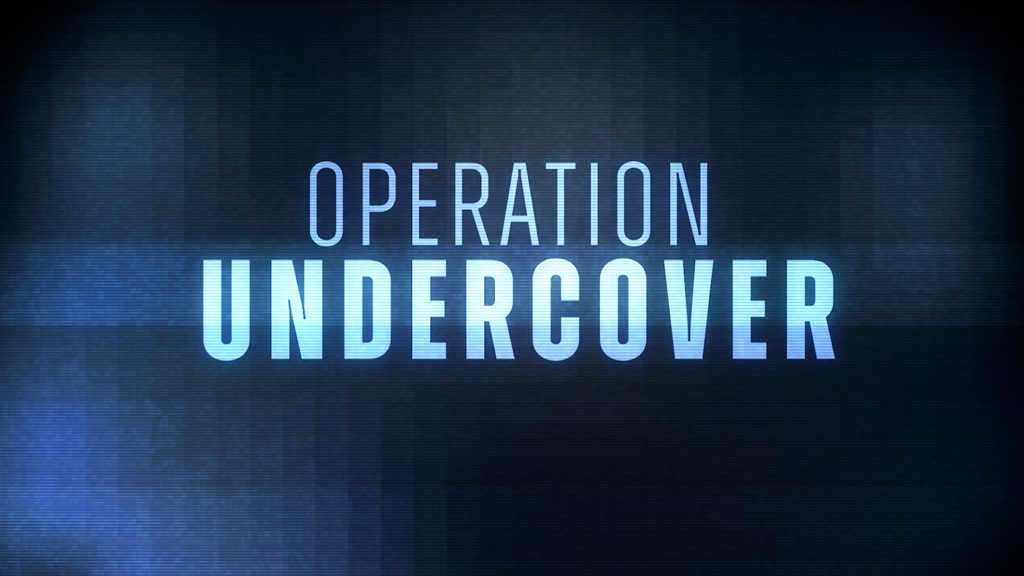
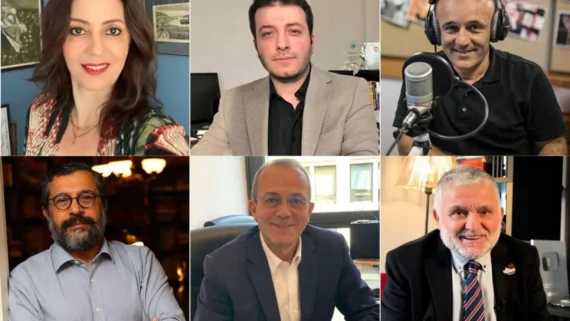

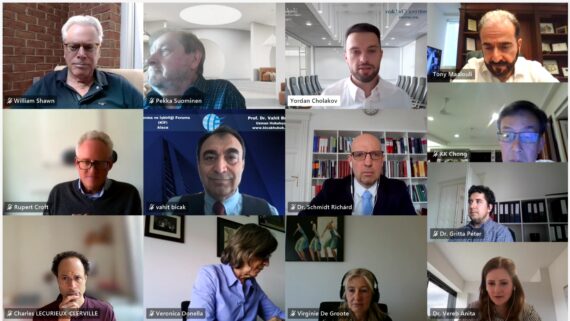
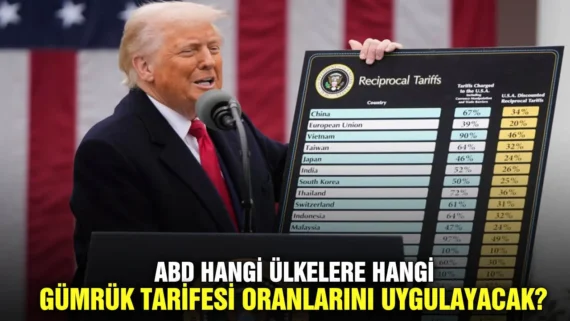

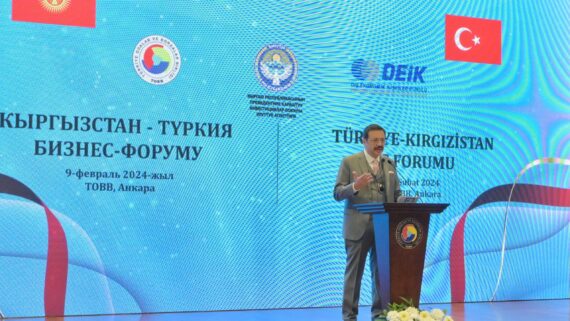

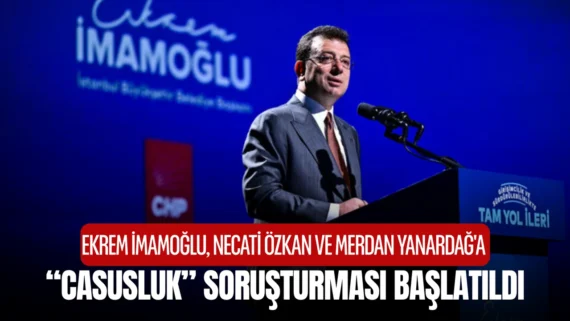
Comments
No comments yet.